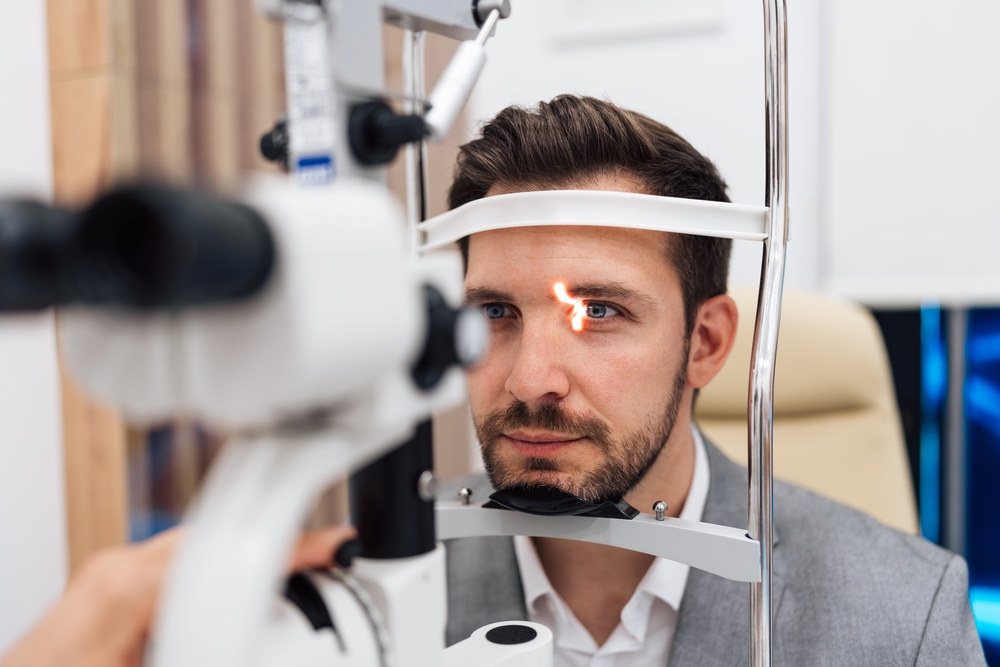
Your vision plays a crucial role in your daily life, from reading the morning news to driving around McKinney’s scenic neighborhoods. Yet, many eye conditions can develop silently, affecting your sight without noticeable symptoms. At DeNovo Eye, we’re committed to helping families in McKinney and surrounding areas maintain clear, healthy vision.
Why Regular Comprehensive Eye Exams Are Important
Many people assume that if they’re seeing well, their eyes must be healthy. However, not all eye conditions come with noticeable symptoms in their early stages. Vision changes can be subtle, and serious conditions like glaucoma, diabetic retinopathy, and macular degeneration often develop without pain or immediate vision loss. A comprehensive eye exam does more than just update your prescription—it gives us a complete picture of your eye health, allowing us to detect, monitor, and manage potential issues before they become serious. Here are some of the most common eye conditions we detect during a routine exam and why early detection matters.
Astigmatism, Nearsightedness, and Farsightedness
If you find yourself squinting at road signs or struggling with up-close reading, you may have a refractive error like astigmatism, nearsightedness (myopia), or farsightedness (hyperopia). We determine the best prescription for your glasses or contact lenses and discuss advanced options like myopia management for children.
Dry Eye Disease
If your eyes often feel gritty, irritated, or tired—especially after spending hours in front of a screen—you might have dry eye disease. The Texas climate, allergens, and our increasing digital screen use can make this condition worse. During an eye exam, we assess your tear film quality and recommend treatments to restore moisture and comfort to your eyes.
Cataracts
Cataracts develop gradually, making your vision blurry or dim over time. Many patients in their 50s and 60s begin to notice changes in their night vision, difficulty with glare, or the need for stronger lighting to read. Our exams allow us to monitor cataract progression and guide you on the right time for treatment options.
Glaucoma
Glaucoma is often called the "silent thief of sight" because it damages the optic nerve without warning signs in the early stages. Since it can lead to permanent vision loss, routine eye pressure checks and optic nerve evaluations are critical for early detection—especially for those with a family history of glaucoma.
Macular Degeneration
As one of the leading causes of vision loss in older adults, macular degeneration affects your central vision, making tasks like reading and recognizing faces challenging. If you’re 50 or older, a comprehensive eye exam can help us detect early signs and discuss lifestyle changes or treatments to slow its progression.
Diabetic Retinopathy
For individuals with diabetes, regular eye exams are essential. High blood sugar levels can damage the tiny blood vessels in your retina, leading to vision problems over time. Often, by the time symptoms appear, significant damage has already occurred. That’s why our eye exams include detailed retinal imaging to catch any warning signs early.
Schedule Your Eye Exam at DeNovo Eye Today
The best way to protect your vision is through regular comprehensive eye exams. At DeNovo Eye, we use advanced technology to diagnose conditions early, giving you the best chance at preserving your sight for years to come.
Whether you’re experiencing symptoms or simply due for a check-up, a comprehensive eye exam at DeNovo Eye is the first step toward lifelong vision health. Visit our office in McKinney, Texas, or call (469) 317-2020 to book an appointment today.




